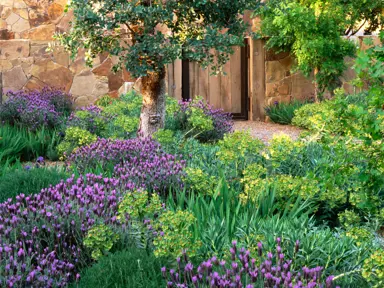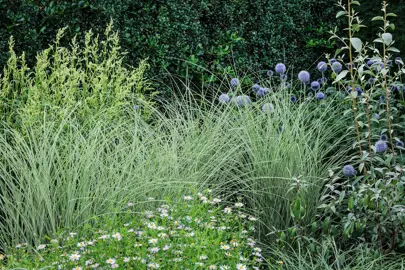
The Plant Company have the best Cistus for sale, a fantastic range, and we can ship them to you fast! Browse our range of New Zealand-grown plants for sale and add some of our amazing gems to your garden.
Cistus Pink Ice, commonly known as Pink Rock Rose, is grown for its pretty flowers which have a paper like appearance. It bears masses of pink...
Cistus Anne Palmer is a medium-sized rock rose that carries papery, silver-pink, crepe like flowers. The flowers don’t last long but are produced...
Cistus ‘Bennetts White’ is an attractive evergreen shrub known for its crisp white flowers with a yellow centre, blooming abundantly in late spring...
Cistus ‘Brilliancy’ is a vibrant evergreen shrub celebrated for its striking crimson-pink flowers, each with a yellow centre, blooming profusely in...
Cistus crispus, commonly known as Rock Rose, is grown for its pretty flowers in near arid conditions. This variety is evergreen shrub with a rounded...
Cistus incanus, commonly known as the Pink Rock Rose, is grown for its pretty flowers which have a paper like appearance. It bears masses of bright...
Cistus ladanifer, commonly known as the Crimson-Spot Rockrose, features white flowers with dark crimson spots which are borne from late spring...
Cistus lusitanicus, commonly known as the Gum Cistus, is a striking evergreen shrub valued for its large, white blooms marked with deep crimson spots...
Cistus Pink Silk, commonly known as the Pink Rock Rose plant, is able to produce pretty flowers in near arid conditions. This variety bears small...
Cistus purpureus, commonly known as the Rockrose Orchid, is grown for its pretty flowers which have a paper like appearance. It bears masses of pink...
Cistus salviifolius is a low growing shrub featuring dark green foliage and lovely flowers. Pure white flowers with yellow bases are borne from late...
Cistus Silver Pink, commonly known as Rock Rose, is grown for its pretty flowers which have a paper like appearance. It bears masses of bright pink...
Cistus ‘Snowmound’ is a compact evergreen shrub that produces a breathtaking display of pure white flowers with golden-yellow centres from late...
The Cistus 'Sunset' plant, commonly known as Rock Rose, is grown for its hardy nature and pretty flowers. This evergreen shrub produces single...
Cistus ‘Violetti’ is a striking evergreen shrub celebrated for its profusion of vivid purple-pink flowers with contrasting yellow centres. Blooming...
Cistus Yellow Fever, commonly known as the Yellow Rock Rose plant, is grown for its pretty flowers which have a paper like appearance. It bears...
Growing colourful shrubs such as Cistus (commonly known as Rock Rose plants) in your garden delivers a vast range of benefits:
We have the largest variety of Cistus incanus, Cistus ladanifer, and Cistus purpureus plants, and we have the right one for your space. These have been selected to thrive in NZ’s climate. We stock only the highest quality plants, sourcing them locally, and from NZ’s leading nurseries. Each plant is packed and transported with extreme care, ensuring it arrives to you in the same condition it was in when it left the nursery. If you are wanting to buy Cistus plants, shop with confidence from the best in the industry.
The best Cistus plant to grow depends on your climate, soil conditions, and personal preferences. However, some of the most popular and easy-to-grow Cistus plants include:
Another name for Cistus is rock rose. This is because the plants in the genus Cistus are native to rocky habitats in the Mediterranean region. Rock roses are known for their beautiful flowers, which can be white, pink, purple, or yellow.
The most fragrant Cistus is the Cistus ladaniferus, also known as Gum Rockrose. It has sticky leaves that produce a sweet fragrance. The flowers are white with a yellow centre and are also fragrant. It native to the Mediterranean region and is popular for its beautiful flowers and sweet fragrance.
Other fragrant Cistus plants include:
Cistus is the same as rock rose. The genus Cistus is commonly known as rock rose because of their resemblance to old-fashioned, single roses and their preferred habitat of rocky, relatively poor soil.
The hardiest Cistus species are those that can withstand colder temperatures and harsher weather conditions. Here are some of the top contenders:
1. Cistus x corbariensis: This hybrid variety is known for its exceptional cold tolerance, reportedly surviving temperatures as low as -17°C (1°F). It boasts attractive white flowers with a crimson blotch at the base of each petal and dense evergreen foliage.
2. Cistus x argenteus 'Silver Pink': 'Silver Pink' can tolerate temperatures down to -15°C (5°F). It features beautiful pink flowers with a striking silver-grey foliage that adds a unique touch to any garden.
3. Cistus ladanifer: This classic species is known for its hardiness and adaptability, thriving in various climates. It can withstand temperatures down to -12°C (10°F) and produces large, white flowers with a distinctive resinous scent.
4. Cistus 'Grayswood Pink': This low-growing cultivar is a popular choice for its compact size and reliable hardiness. It can tolerate temperatures down to -10°C (14°F) and produces clusters of soft pink flowers with a long blooming period.
5. Cistus x cyprius: This hybrid offers good frost resistance, surviving temperatures down to -7°C (19°F). It showcases vibrant pink flowers with a darker central blotch and forms a dense, rounded shrub ideal for landscaping.
Other notable hardy Cistus:
It's important to remember that hardiness can vary depending on specific factors like microclimates, soil conditions, and how long the cold temperatures persist for.
The most fragrant Cistus is the Cistus ladaniferus, also known as Gum Rockrose. It has sticky leaves that produce a sweet, balsamic fragrance, often described as resembling labdanum or amber. The flowers, which are white with a yellow centre, are also fragrant and contribute to the overall aroma of the plant.
The lifespan of a Cistus can vary depending on several factors, including the specific species, growing conditions, and care it receives. However, as a general guideline the average lifespan is 5-10 years. : Most Cistus species have an average lifespan of around 5-10 years. After this time, they may become woody, leggy, and less floriferous.
The term "Rose of Sharon" can be confusing as it refers to two different plants:
1. Cistus (Rock Rose): This genus of flowering shrubs is often called "Rose of Sharon" in some regions. It includes many species native to the Mediterranean region, known for their large, colorful flowers and aromatic leaves. The Cistus ladaniferus species is particularly well-known for its sticky leaves that produce a resin used in perfume making.
2. Hibiscus syriacus (Rose of Sharon): This flowering shrub is also commonly referred to as "Rose of Sharon" and is native to eastern Asia. It boasts large, showy flowers in various colors like pink, purple, and white, and blooms prolifically throughout the summer.
Cistus oil, also known as rockrose oil or labdanum oil, is a versatile essential oil with a variety of potential uses. Here are some of the most common applications:
Aromatherapy:
Skin care:
Other uses:
It is important to note that cistus oil is a potent essential oil and should be used with caution. Always dilute it with a carrier oil before applying it to the skin.
he symbolism of the Cistus, also known as Rock Rose, varies depending on the culture and context. Here are some of the most common symbolic meanings associated with this plant:
Positive meanings:
Negative meanings:
Cultural meanings:
It's important to note that these meanings are not exhaustive and the symbolism of the Cistus can be interpreted differently depending on the individual and the context.
Whether you need assistance finding the plant you’re looking for or you simply want to know more about who we are and what we do, we invite you to get in touch with us today. A member of The Plant Company team will get back in touch as soon as possible.


